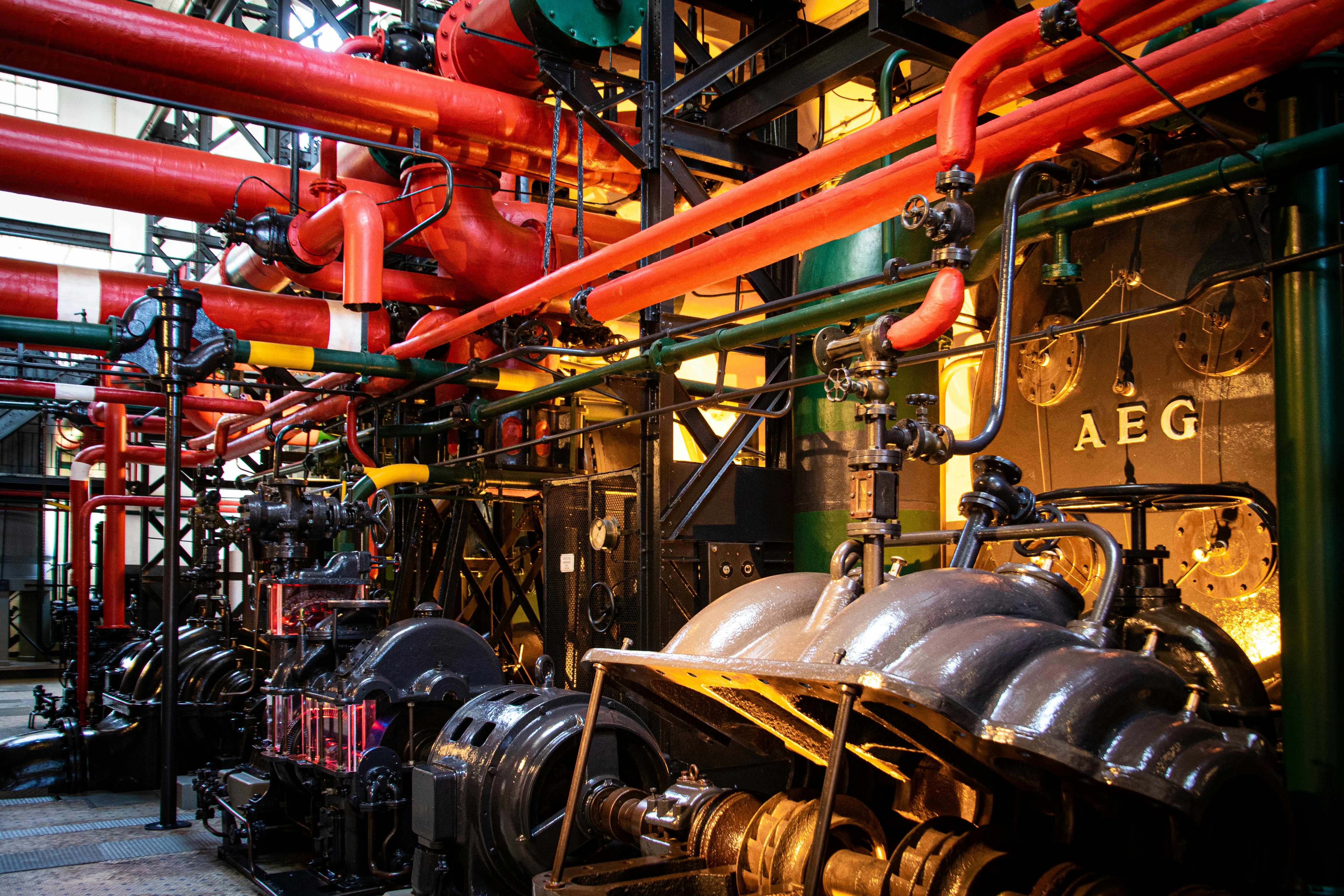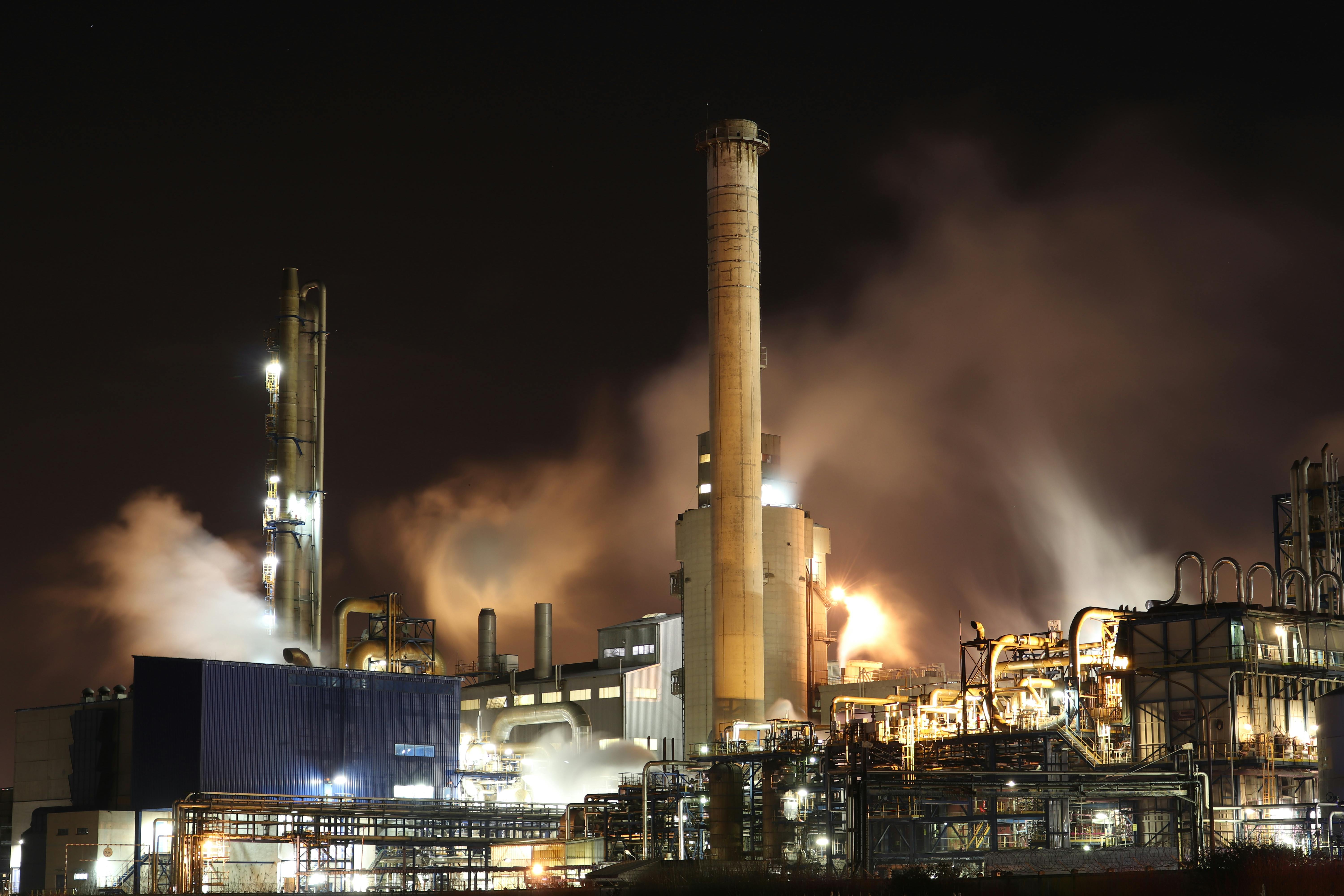Fractional distillation is a process used in the petroleum industry to separate crude oil into its component parts, such as gasoline, kerosene, and diesel fuel. This process is the most common method of refining crude oil, and involves heating the crude oil to very high temperatures and allowing the components to separate based on their boiling points. Fractional distillation allows for precise control over the finished product, ensuring that only the desired components are extracted from the crude oil. This process is essential for producing fuel for transportation and other uses in modern society.Fractional distillation is a technique used in the separation of mixtures composed of two or more liquids that have different boiling points. During this process, the liquid mixture is heated in a distillation column to vaporize and separate the components. As the vapor rises through the column, it is condensed and collected in fractions based on their boiling points. The end result is a more purified mixture of liquids than what was initially used.
How Does Fractional Distillation Work?
Fractional distillation is a process used to separate components of a liquid mixture based on their boiling points. It works by heating the mixture in a distillation column filled with packing material, such as glass beads, ceramic saddles or metal plates. The packing material increases the surface area of the column which allows for better contact between the vapors and liquid. As the mixture is heated, the components with lower boiling points vaporize first and are collected at the top of the column. The components with higher boiling points remain in liquid form and are collected at the bottom of the column. By controlling the temperature and pressure inside the system, it is possible to separate a wide range of compounds from each other.
Fractional distillation is most commonly used in chemical and petrochemical industries to produce petroleum products such as gasoline, kerosene, diesel fuel and lubricating oils. It is also used for producing biofuels from plant oil sources such as soybean oil or canola oil. The process can be used to separate any type of liquid mixture that has different boiling points, making it a widely applicable separation technique.
What Role Does Fractional Distillation Play in the Petroleum Industry?
Fractional distillation is an essential process used in the petroleum industry to separate crude oil into its different components. This process involves heating crude oil to a high temperature until it vaporizes. The vapors are then passed through a column where they are cooled and condensed back into liquid form. The individual compounds that make up the crude oil have different boiling points and as such, will condense at different levels within the column, allowing them to be separated from each other and collected individually.
Fractional distillation is used to produce a variety of products from crude oil, including motor gasoline, kerosene, jet fuel, diesel fuel, fuel oils, lubricating oils, asphalt base stocks and other petrochemicals. This process is also used by refineries to produce gasoline of a higher octane rating by separating out the higher-octane components of the crude oil.
Aside from refining petroleum products for commercial use, fractional distillation is also used in laboratories to analyze samples of petroleum and related products for research purposes. It can be used to identify unknown compounds in a sample or to measure
Fractional Distillation of Petroleum
Fractional distillation is a process of separating mixtures of liquids with different boiling points. It is an important technique used in the refining of crude petroleum, which can be separated into various fractions including gasoline, kerosene, diesel fuel and lubricating oils. The process involves heating the crude oil to very high temperatures in a distillation tower. As the heated crude oil vaporizes, it rises up the tower and passes through a series of trays or plates. Each tray or plate has a different temperature that affects the condensation point of each fraction of hydrocarbons. The liquid fractions then condense on the plates and fall back down into collection tanks where they can be separated and stored for further use.
Petroleum Products Obtained Through Fractional Distillation
As a result of fractional distillation, various products can be obtained from crude oil including gasoline, kerosene, diesel fuel, lubricating oils and heating oil. Gasoline is one of the most widely used products that comes from fractional distillation. It is used as an automotive fuel for cars, motorcycles
The Benefits of Fractional Distillation for the Petroleum Industry
Fractional distillation is a process used by the petroleum industry to separate crude oil into various products. This process is essential for refining crude oil into useful and valuable products such as gasoline, diesel fuel, asphalt, kerosene, and other petroleum-based products. Fractional distillation is particularly advantageous to the petroleum industry due to its efficiency, cost-effectiveness, accuracy, and versatility.
Fractional distillation is an efficient method of separating complex mixtures of hydrocarbons. It takes advantage of the different boiling points of compounds in a mixture to separate them into fractions. By using fractional distillation, it is possible to produce relatively pure versions of a variety of compounds from a single batch of crude oil. This allows for greater control over the quality and composition of the end product.
Fractional distillation is also cost-effective because it can be done quickly and with less energy than other refining methods. The process requires only minimal equipment and can be completed in a relatively short amount of time compared to other processes such as

Challenges of Using Fractional Distillation in the Petroleum Industry
Fractional distillation is a process used to separate mixtures of liquids into their individual components. It is commonly used in the petroleum industry to separate crude oil into different fractions, such as gasoline, diesel, and kerosene. Despite its effectiveness, fractional distillation can be challenging to implement and maintain due to several factors.
The first challenge is the cost of equipment. Fractional distillation requires specialized equipment that can be expensive and require significant amounts of energy to operate. This can make it difficult for some companies to afford the necessary equipment or keep up with the ongoing maintenance costs associated with it. Additionally, there are safety concerns due to the flammable nature of crude oil and other components involved in the process.
Another challenge is related to the composition of crude oil itself. Crude oil is a complex mixture that can contain hundreds of different chemical compounds in varying concentrations. This makes it difficult to predict what fractions will be produced during fractional distillation and how much of each fraction will be produced. This uncertainty can make it difficult for companies to plan ahead and
Fractional Distillation in the Petroleum Industry
Fractional distillation is an important process used in the petroleum industry to separate crude oil into various fractions based on their boiling points. This process is essential for refining crude oil into the various forms of fuel and other petroleum products. Fractional distillation can improve efficiency by helping to reduce the amount of energy that is needed to heat and cool the crude oil during refining. This can help to lower energy costs, reduce emissions, and improve product quality. Additionally, fractional distillation can be used to separate different types of hydrocarbons from each other based on their boiling points. This helps to ensure that only the desired products are produced during refining.
Fractional distillation works by heating crude oil until it reaches its boiling point, then condensing it into a mixture of different hydrocarbons. The different fractions are then collected in a separator tank and further processed into usable products. To improve efficiency, it is important to use a system that is designed specifically for fractional distillation. This will help to ensure that the right temperatures are reached at each stage of the process and that only the desired products
Precautionary Measures for Fractional Distillation in the Petroleum Industry
Fractional distillation is one of the most important processes in the petroleum industry. It is used to separate crude oil into various components which have different boiling points. The process requires extreme caution due to the highly flammable nature of the petroleum products. Safety precautions should be taken at every step of the process in order to prevent any accidents or mishaps. Here are some important safety measures that need to be followed when using fractional distillation in the petroleum industry:
Fire Prevention
The presence of flammable liquids and vapors makes it necessary for workers to take extra precaution against fire. Fire extinguishers should be present in all areas and workers should be trained on how to use them if needed. All equipment used during the process should also be checked regularly for any signs of wear and tear that could lead to fire hazards.
Adequate Ventilation
It is essential to maintain adequate ventilation in all areas where fractional distillation is being conducted.

Conclusion
Fractional distillation is an essential process used in the petroleum industry to separate crude oil into its various components. This process is a continuous process and can take hours or days to complete. It is important to note that fractional distillation can be used to refine crude oil into different types of fuel, making it an invaluable tool in the refining of petroleum products. This process is also used to create chemical compounds and other products from petroleum, such as plastics, lubricants and more. Overall, fractional distillation has an important role in the petroleum industry and its use will continue to be beneficial for many years to come.
The use of fractional distillation can help reduce costs associated with refining petroleum products, as well as reduce emissions from refineries. Furthermore, it also helps ensure that only the best quality products are produced from crude oil. As such, fractional distillation will remain a vital part of the petroleum industry for many years ahead.

